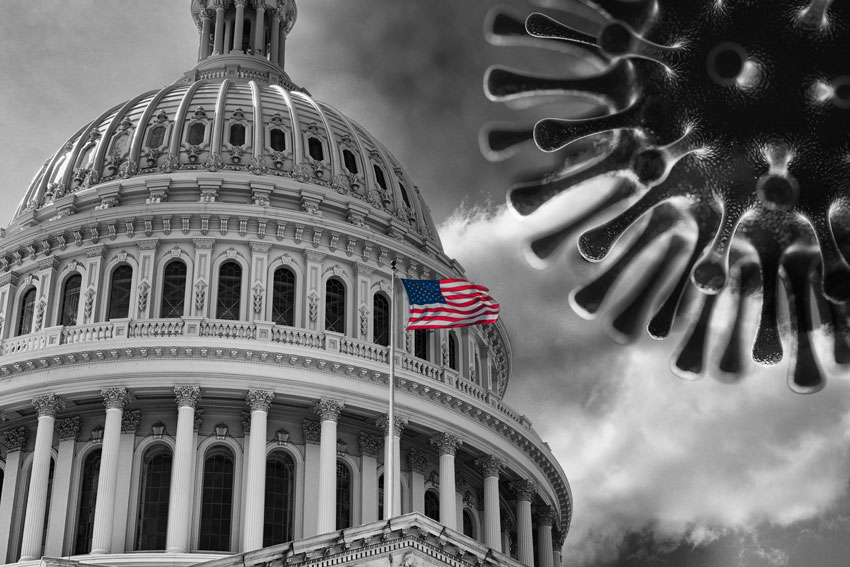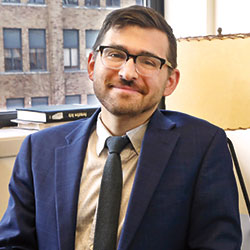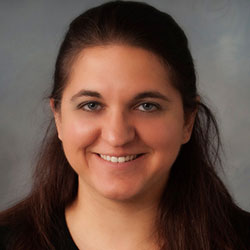Politics of the COVID-19 Response in the U.S.

View the on-demand recording from this September 21 webinar discussion on how a global pandemic has revealed flawed political institutions and policies.
There is criticism in the U.S., and probably around the world, of how politicized COVID-19 has become – and how this has led to the failures of the U.S. response to the pandemic. How did we get to this point in the U.S., with more confirmed COVID-19 cases and deaths than any other country worldwide, and the current social, economic and political climate? Why does the management of the COVID-19 pandemic have to be political?
These questions and more were explored during a thought-provoking webinar presented on Monday, September 21 with Philip Rocco and Julia Azari, political science professors at Marquette University.
“Pandemics are political,” says Rocco. “There is no apolitically managed pandemic and there never will be.”
The COVID-19 pandemic is not only a global health crisis, but it is also a crisis of the global political economy and of the legitimacy of domestic political institutions, says Rocco. If we study the politics of COVID-19, we can have the means to identify critical links between political choices and the current state of the virus as well as the prospects for significant institutional changes. Watch this webinar on-demand to explore how:
- Novel health events can allow for a high level of motivated reasoning, which especially in highly polarized societies, is subject to political manipulation
- Political and economic institutions define the incentive for the rulers in a given society to be responsive to the health needs of all the people in it.
- Pandemics and other crises can be catalysts for political change or may spark a wave of reactionary politics that tethers the polity to the status quo ante.
Whether you are a student or faculty of political science, history, government, journalism, or other fields of study, you will benefit from this critical discussion about the politics of a crisis that has touched every corner of the globe.
Webinar: Politics of the COVID-19 Response in the U.S.
About the Speakers:

Philip Rocco is an assistant professor of political science at Marquette University. He is the co-author of Obamacare Wars: Federalism, State Politics, and the Affordable Care Act (University Press of Kansas, 2016) and co-editor of American Political Development and the Trump Presidency (University of Pennsylvania Press, 2020). His research on the politics of the policymaking process has been published in numerous academic journals, including Health Affairs, JAMA, Journal of Health Politics, Policy, and Law, the Journal of Public Policy, Political Science Quarterly, and the Public Administration Review. Professor Rocco was formerly a postdoctoral associate at the University of Pittsburgh’s Health Policy Institute. He earned his PhD and MA degrees from the University of California, Berkeley.

Julia Azari, an associate professor of political science at Marquette University, is also the Faculty Director for the Inauguration 2021 Academic Seminar. Her research and teaching interests include the American presidency, American political parties, the politics of the American state, and qualitative research methods. Professor Azari is author of the book, Delivering the People’s Message: The Changing Politics of the Presidential Mandate. She is a regular contributor to the political science blog, Mischiefs of Faction, a contributor at FiveThirtyEight.com, and a co-host of the political science podcast Politics in Question. She holds Ph.D., M.A. and Master of Philosophy degrees in political science from Yale University, and a B.A. in political science from the University of Illinois at Urbana-Champaign.
The Washington Center (TWC) is a non-partisan, educational organization that strives to expose audiences to the wide array of perspectives and opinions on current and political issues. The views expressed by interview subjects, speakers and panelists do not necessarily represent TWC’s views.